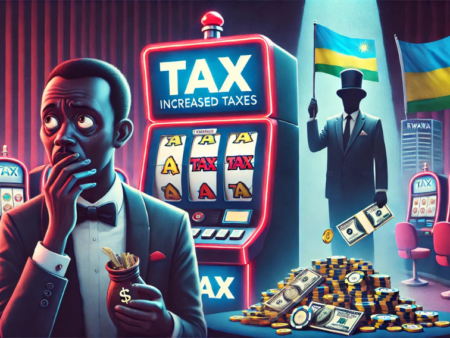In a surprising twist, it appears that Ghana’s much-debated 10% betting tax has yet to see the light of day. According to the Director-General of the National Lottery Authority (NLA), Sammi Awuku, the government has not started collecting this tax nearly a year after it was introduced with great fanfare.
Let’s rewind a little. Back in 2023, the Ghana Revenue Authority (GRA) informed sports betting and lottery operators of a 10% tax on all winnings, with an implementation date of August 15. This tax was part of the government’s broader plan to widen the tax base and rake in more domestic revenue. Seemed simple enough, right? Pass a bill, notify the public, and start collecting the money.
However, as it turns out, implementing a tax on sports betting winnings is more complicated than just telling people, “Pay up.” Sammi Awuku, speaking candidly during an interview with Oyerepa TV, revealed that his office has yet to implement the policy. Yes, nearly 12 months after the policy was set in motion, not a single cedi has been collected from bettors.
Awuku didn’t mince words about the challenges. “Even with that, the truth of the matter is that we have not been able to implement it. I am telling you today. As I sit here as the Director General for National Lotteries, I have not been able to implement it,” Awuku said, leaving no doubt about the situation.
Why the Delay?
It turns out the root of the problem lies in the murky waters of Ghana’s unregulated betting scene. The tax was initially rolled out after Parliament passed several bills, including the Income Tax Amendment Bill 2022.
However, a large part of the betting industry, particularly illegal operators, remains outside the government’s purview, making it tough to tax them.
Awuku shed light on this, explaining, “First of all, we have a wide market of illegal operators. So you don’t even know them to go and tax them.” With roughly 380 illegal operators floating under the radar, collecting revenue has proven to be no easy feat. This vast grey market has made it nearly impossible for authorities to pinpoint where the tax money should come from.
The NLA and GRA have been in constant discussions for over eight months, trying to hammer out a workable framework. But it’s not just about finding the illegal operators—it’s also about ensuring the survival of legitimate businesses in the industry. “Now that they are licensed, we can go back to them and discuss how to collectively support the government’s plan, ensuring the business survives, the NLA survives, and still generates enough revenue for the government,” Awuku elaborated.
The Public’s Reaction and What’s Next?
When the 10% betting tax was announced, it was met with significant public backlash. Ghanaians who enjoy a flutter on sports were understandably unhappy about the potential hit to their winnings. And now, it seems those complaints may have delayed things further—at least until the government can figure out how to tax an industry that has so many unregulated players.
Despite the delay in enforcement, the government remains committed to expanding the tax net. But for now, Awuku remains pragmatic, admitting that “we haven’t been able to collect even a cedi.”
The NLA, GRA, and Ministry of Finance are still in talks to finalize the tax modalities. The goal is to crack down on illegal operators while also ensuring that legitimate businesses and bettors can continue to thrive—though taxed.
It remains to be seen how soon this tax will actually be enforced. For now, punters can breathe easy, knowing that their winnings are safe from the taxman… at least for the moment.
But as Awuku pointed out, the clock is ticking. With some 380 unlicensed operators still out there, the government faces a long road ahead if it wants to cash in on this sector. Whether it will manage to get all its ducks—or betting slips—in a row remains a big question.

